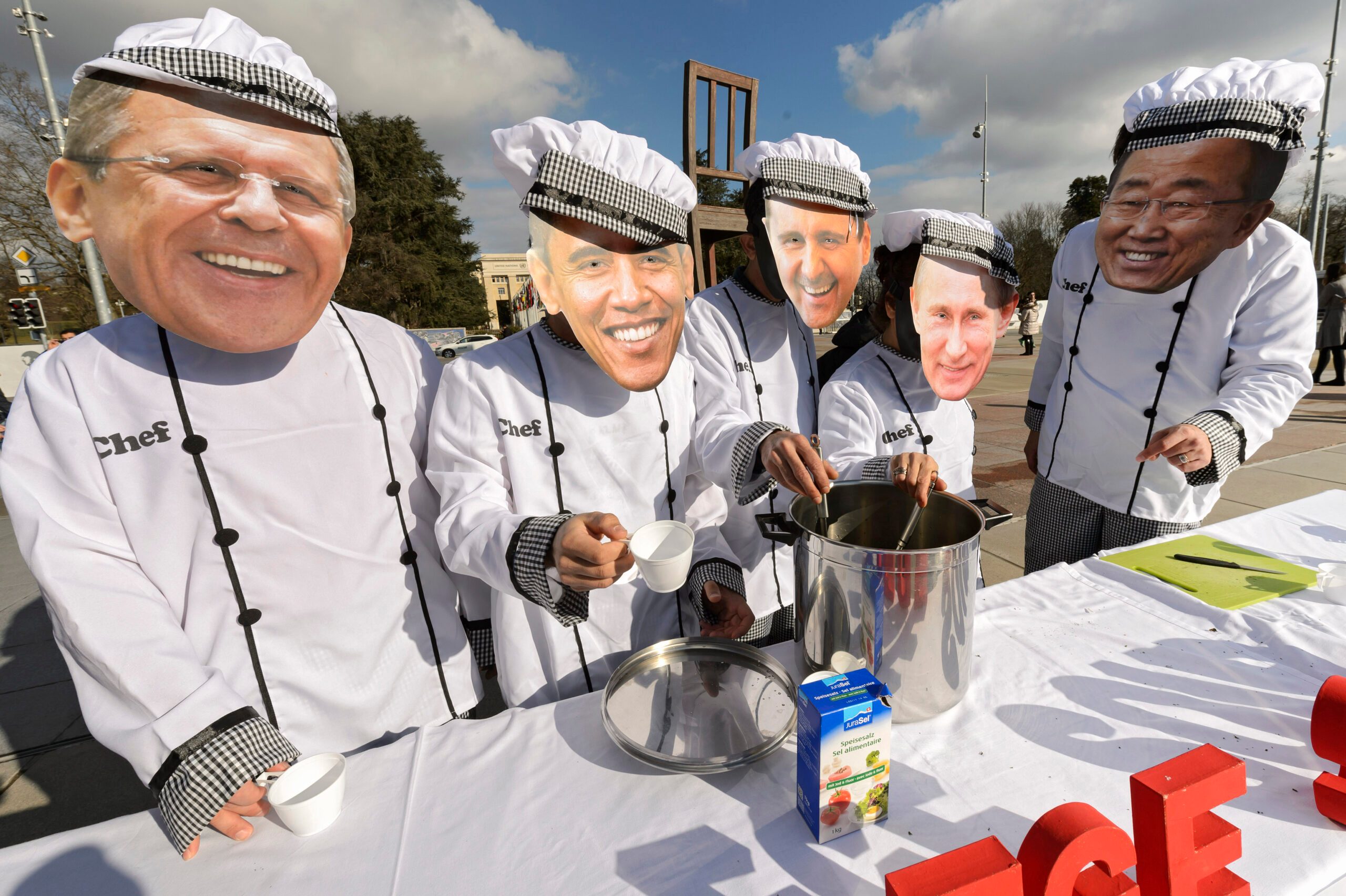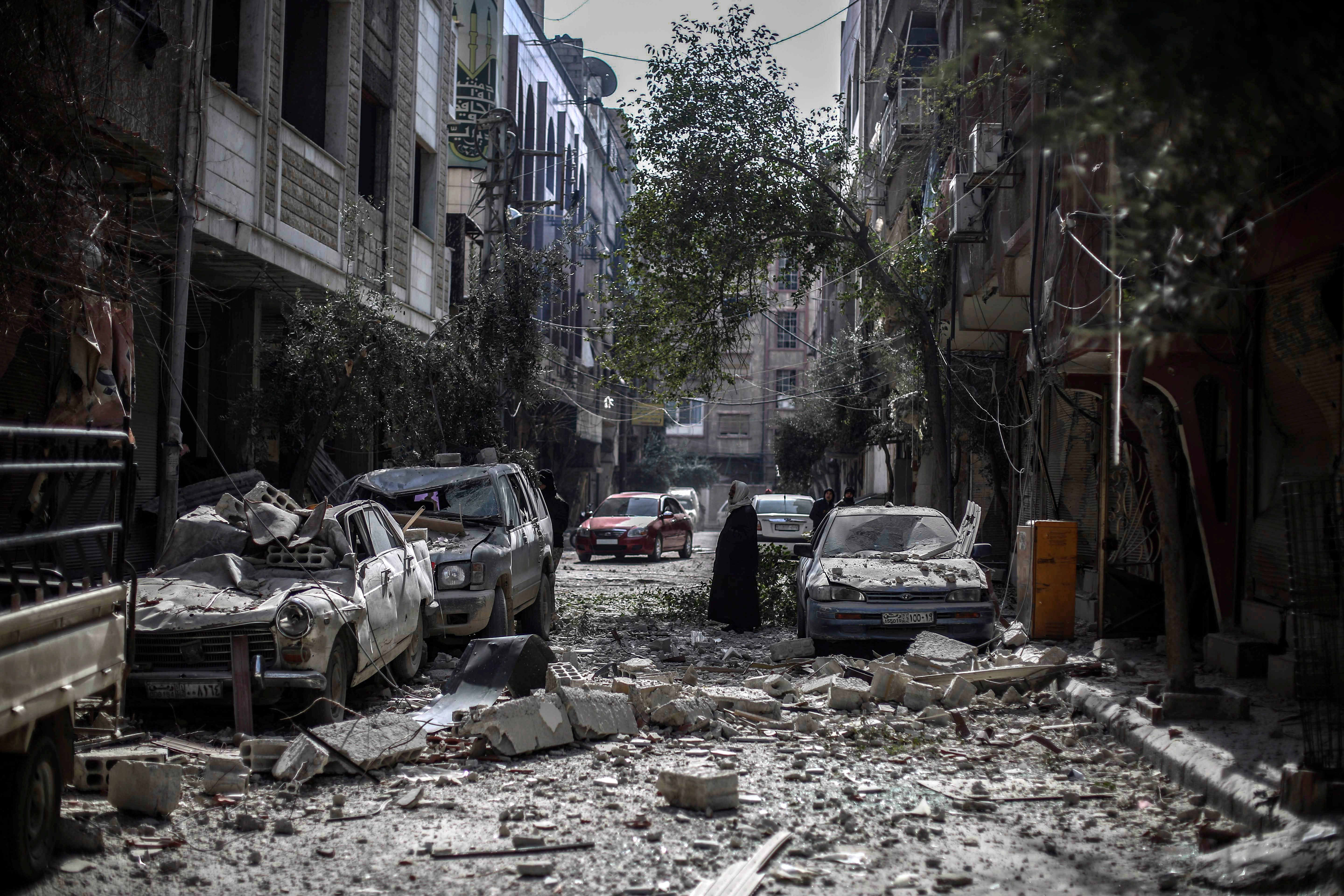SUMMARY
This is AI generated summarization, which may have errors. For context, always refer to the full article.

GENEVA, Switzerland – The Syrian peace talks, which got off to a start of sorts this weekend, are meant to be a uniquely Syrian affair. But in reality there is a host of outside interests also at the table, in spirit at least.
What began as a popular revolt against the authoritarian rule of President Bashar al-Assad in March 2011 quickly degenerated into a multi-front civil war that sucked in regional and global powers and created a chaos exploited by brutal jihadist groups.
Today, the war in Syria is as much about global politics and regional competition as it is about who runs the country.
On one side are Russia and Iran, the chief financial and military backers of Assad.
On the other stand Western countries, the Gulf monarchies and Turkey – all of whom demand Assad’s removal – but each with its own priorities on the ground.
The one enemy common to all parties is the Islamic State group (ISIS), though they disagree on how much of a priority its eradication should be.
World powers also say they are committed to a diplomatic solution – with everyone signing up to a timetable for the fledgling peace process at talks in Vienna in November and the UN last month.
But squaring their contradictory demands will be a huge task.
Iran will be particularly reluctant to abandon its ally, having sent large numbers of “military advisors” to Syria, as well as deploying its Lebanese proxy militia Hezbollah, which has lost hundreds of fighters in the conflict.
Experts say that Russia, despite its air strikes in support of Assad’s regime, may be willing to see him go, but only if a replacement is found who can guarantee that Moscow retains its last foothold in the Middle East.
“If Iran loses Syria, it loses by far its biggest ally in the Middle East. If Russia loses Syria, it’s a big geopolitical blow at a time when it’s facing isolation,” said Shashank Joshi, senior researcher at the Royal United Services Institute in London.

Rising tensions
On the other side of the conflict, the United States abandoned the idea of bombing Assad’s forces back in August 2013, even after the regime crossed its supposed “red line” when it used chemical weapons against opponents in a Damascus suburb.
Washington has been reluctantly dragged into the conflict by the growing threat of ISIS, with US planes taking the lead in a prolonged bombing campaign against the jihadists in Syria as well as Iraq.
It has supported some “moderate” opposition groups, but most of these are focused on fighting Assad, and US attempts to train and equip anti-ISIS troops ended in disaster last year when the new force collapsed almost immediately and the program was abandoned.
Observers say the United States may be moving away from the demand that Assad must stand down as a pre-condition for talks.
That could put it at odds with its Arab allies led by Saudi Arabia and Qatar, which both arm hardline militias against Assad and tend to see the conflict through the prism of their competition for regional dominance with Iran.
The Gulf monarchies already feel sidelined by Western efforts to bring Iran back into the diplomatic fold since a deal on Tehran’s nuclear program and the recent lifting of sanctions.
Regional tensions were further heightened when Saudi Arabia executed a Shiite cleric in Riyadh, leading to violent protests in Tehran. The two rivals are also engaged in a proxy war in Yemen.
One of the more inscrutable players has been Turkey, which has suffered terror attacks by ISIS but tends to view Kurdish separatists as the bigger threat.
Western governments have criticized Ankara for failing to seal its southern border, allowing ISIS to trade oil and receive supplies and foreign fighters. – Cécile Feuillatre, AFP/Rappler.com
Add a comment
How does this make you feel?





There are no comments yet. Add your comment to start the conversation.